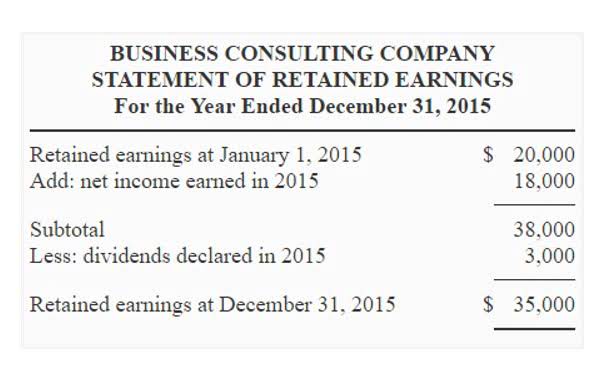
With increased ROI through solid financial management, businesses can raise capital funds and attract more investors. If done right, financial management offers a crystal-clear look into a company’s finances. Finance is ideal for entrepreneurs looking to understand investments and business strategy, while accounting is crucial for financial management. Many accountants transition into finance roles by gaining experience in financial analysis, investment strategies, or risk management.
- Eric Gerard Ruiz, a licensed CPA in the Philippines, specializes in financial accounting and reporting (IFRS), managerial accounting, and cost accounting.
- They work internally to meet the needs of clients, customers, or other outside entities that do not work directly with the company but can affect or be affected by the business or projects.
- This is achieved through the double-entry bookkeeping system, where each transaction is recorded in at least two accounts, ensuring that the accounting equation remains balanced.
- This can be a huge problem that can lead to missed opportunities, financial shortfalls, or worse—inaccuracies in tax filings that can attract fines or inspections from tax authorities.
Characteristics of management accounting
These statements and reports provide valuable financial data to both internal and external users of a company. With the financial accounting vs managerial accounting examples we provided, we hope that this information enlightened you about their differences and why both are necessary for businesses. To some extent, small businesses need to present financial statements for applying for loans and credit cards. However, managerial accounting can be used for day-to-day accounting since managers and small business owners may need to access reports for decision-making. On the other hand, financial accounting reports are tightly regulated, especially when it comes to a company’s balance sheet, income statement, and cash flow statement. The information contained in these statements is available for public review and used by investors, which is why companies need to be very careful about how financial vs managerial accounting they report figures and make calculations for these.
- While both these types of accounting deal with numbers, managerial accounting is strictly for internal use.
- Certified Public Accountants (CPAs) are often employed in public accounting firms and are responsible for auditing financial statements to ensure their accuracy.
- All non-cash expenses (or losses) are added back, and all non-cash incomes (or profits) are deducted to get precisely the net cash inflow (total cash inflow – total cash outflow) for the year.
- Financial accounting reports a company’s performance for a specific period of time and does it in the most straightforward way possible.
- Despite these differences, financial and managerial accounting are closely connected and often rely on the same underlying financial data.
- This detailed cost analysis is necessary for internal decision-making, especially for pricing strategies, budgeting, and identifying areas where cost can be reduced without compromising quality.
Common Financial Statements

Meanwhile, in financial accounting, accounting standards limit the sources of information because it aims to standardize financial reporting. Reports are mainly for internal decision-making, planning, organizing, and controlling of business operations and functions. It helps managers and small business owners understand resource consumption and constraints, production bottlenecks, system issues, and other aspects.
- The AI in the accounting market is projected to grow from $6.68 billion in 2025 to $37.60 billion by 2030.
- Managers obtain essential business know-how to design successful organizational plans, policies, and strategies.
- Financial accounting primarily focuses on the financial health of the company and provides information for external stakeholders such as investors and creditors.
- Staying compliant with tax laws and regulations—especially for businesses operating across multiple regions—can be stressful and complex.
- These statements and reports provide valuable financial data to both internal and external users of a company.
- Not just customer project management, but also the internal management of the company.
Financial vs. Management Accounting: What’s the difference?

With these metrics, startups can understand the financial consequences of scaling decisions such as expanding into new markets, increasing production, or hiring additional staff. It gives you insights into different aspects of your business, such as cost behavior, profitability, and cash flow, which can help in analyzing how different decisions might affect your financial health. For a startup, this means determining whether to enter a new market, launch a new product, or cut costs in a specific area. Without this information, you are likely to make decisions based on incomplete or outdated data, which increases the chances of errors. No, managerial accounting does not follow GAAP guidelines because it focuses on preparing internal reports and information for the internal management’s use and does not comply with external reporting standards. It is used to create reports that help the management with planning, budgeting, and performance evaluation and is not to be submitted as official bookkeeping documents for government filings.

Key Differences Between Managerial and Financial Accounting
- On the other hand, external auditors frequently check financial accounting reports for correctness and compliance.
- The key differences between managerial accounting and financial accounting relate to the intended users of the information.
- So, financial statements display a company’s performance over a set period, allowing internal and external bodies to see how well it is performing.
- Because managerial accounting is not for external users, it can be modified to meet the timely specific needs of its intended users.
If you have a small team, it can be as simple as creating a shared folder for your receipts and an agreed system for naming the files so you know what you’re looking at later. Becker can help you earn this credential with our pass-guaranteed CMA Exam Review course! We leverage proven study tools and updated content to guarantee your exam-day preparation. Combining both aspects can give founders valuable insight into their business and provide them with an edge to succeed in the competitive Interior Design Bookkeeping startup landscape. With this information, possible investors can determine whether they want to invest, and current investors can offer guidance regarding financial hiccups. Your cost per unit to make the product is $10, which leaves you with an operating margin of 50%.

What Are the 4 Types of Accountant?
Managerial accounting can help identify which products or services can generate the highest returns and which are underperforming. This information can be extremely helpful in making informed decisions about whether to invest time, money, and effort. Based on this analysis, the management might decide to adjust its pricing or marketing strategy to improve its performance in the next month. Such detailed data-driven analysis enables a business to make targeted improvements rather than broad and less effective changes that may lead nowhere. In case the actual expenses are more than the defined budget, managerial accountants can help to investigate whether this happened due to inefficiencies, higher than expected costs, or any other factor.
Leave a Reply